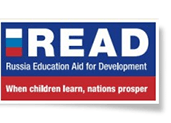The collapse of the Soviet Union and the ensuing civil war had a serious impact on education quality in Tajikistan. Since the signing of a peace accord in the late 1990s, the Government of Tajikistan has focused on rebuilding its education system and ensuring the effective delivery of, and equal access to, a high-quality education. While access to basic education has become nearly universal, access to secondary and tertiary education has continued to show significant disparities by both gender and income.
Part of Tajikistan’s mission to improve education quality and access has included firmly establishing a NTC tasked with the responsibility of measuring student learning outcomes, particularly at the interface between secondary and university education.
The objective of the READ Trust Fund program in Tajikistan in the first stage of the Program was to increase the capacity of the NTC to oversee the sustainable introduction of the new UEE and eventually national grade-level assessments. At the beginning of the program, the baseline diagnostic showed Tajikistan’s overall assessment system to be at a latent to emerging stage in its development. Given the government’s strong interest in having a UEE, an additional, more in-depth diagnostic was conducted to evaluate the existing examinations system and better understand its strengths and weaknesses. Based on the results, a decision was made to use READ funds to provide tailored capacity building and support for the operationalization of the newly-established NTC and the development and introduction of the new UEE system. By the end of the READ Trust Fund program, the NTC was fully operationalized and the new UEE had been successfully piloted, adopted into law, and implemented for the first time on a national scale. While the developmental rating for examinations remains emerging, it is expected to move to established once additional rounds of the new UEE have been successfully conducted.
During the second stage of the READ Trust Fund program in 2016-2019 Tajikistan implements project “Strengthening the Classroom Assessment System”.
FOCAL AREAS OF THE PROJECT
Enhancing classroom assessment practices nationwide
UP TO DATE ACHIEVEMENTS
Trained 50 pilot teachers for the teacher training program using the Classroom Assessment package, which included training modules for in-service teacher training and a teachers’ guide
Collected and analyzed baseline student learning assessment data
Conducted a pilot on teacher monitoring and mentoring for the 50 teachers in the pilot teacher training program; the monitoring and mentoring mechanism details how trained teachers will be monitored and provided with methodological support from a team of mentors
Collected and analyzed teacher monitoring and mentoring data from the pilot
UPCOMING ACHIEVEMENTS
Revise the Classroom Assessment package based on the results of Phase 1 of the pilot
Conduct mid-term learning assessment for grades 1-4 in three subjects: Math, Tajik Language, and Natural Science
Select approximately 550 trainees for the Classroom Assessment training
Conduct training of teachers using the revised Classroom Assessment package





